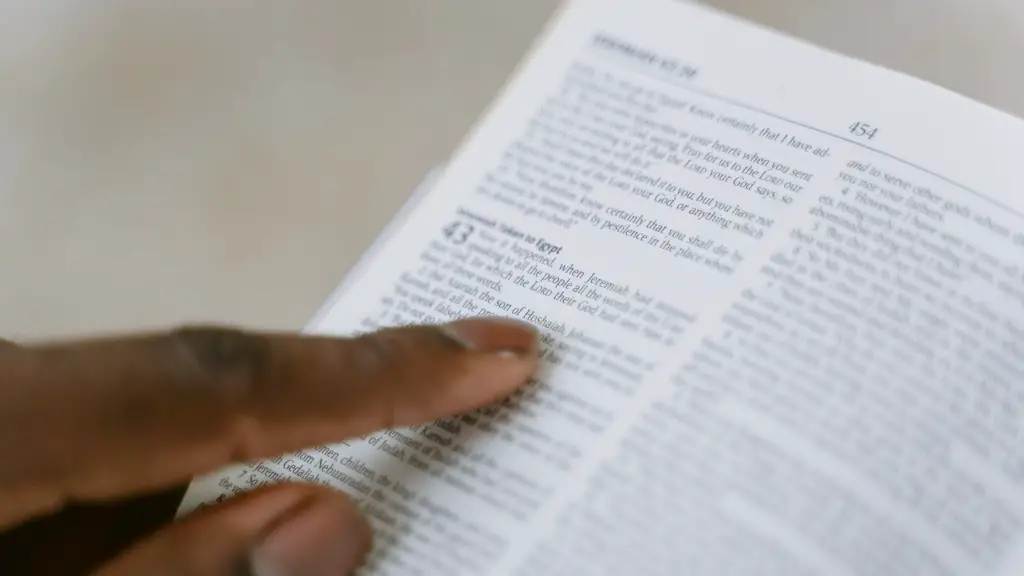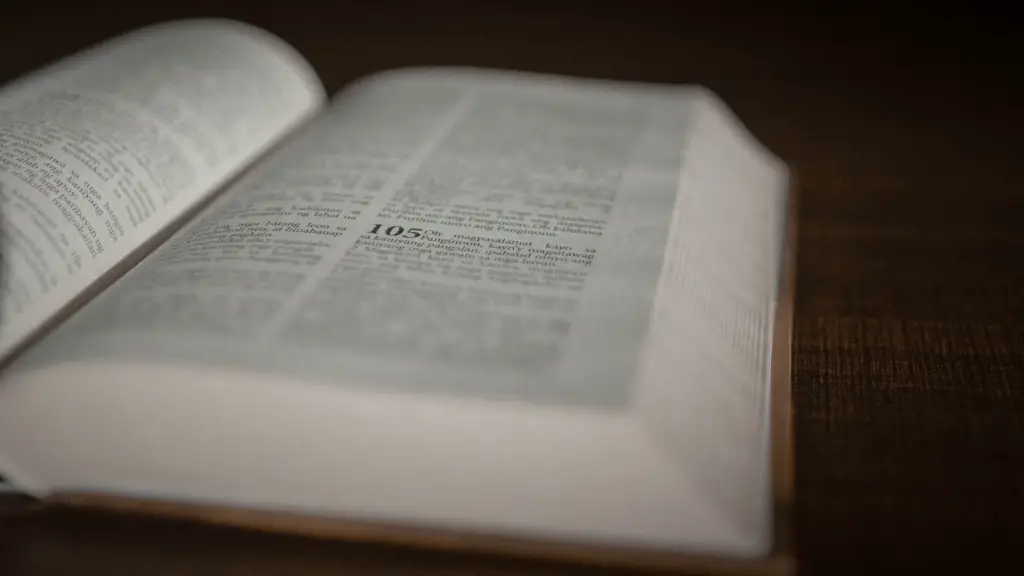The Bible Belt, also known as the ‘Born Again Belt’, is a geographical region in the Southern US that has a particularly high religious concentration. Spanning from Virginia all the way to Texas, it is one of the few places in the US that can be distinguished for its deep-rooted religious values. The Bible Belt is a fully functioning community with its own political, social and economic climate and vibrant culture.
The roots of the Bible Belt can be traced to the post-Civil War era—a time when the South was rife with racial violence and segregation, and when religious and moral values of the Protestant faith emerged as a form of social cohesion. Since then, many Bible Belt states have routinely delivered their electoral votes to Republican Party candidates who share their beliefs. Take, for example, the 2016 US presidential election—Texas, Alabama, Mississippi and Tennessee, all Bible Belt states, voted entirely for Republican candidate Donald Trump.
One of the primary beliefs held by people of the Bible Belt is that the Bible should not be seen as a metaphor but as a literal source and governing principles of a way of life—an attitude that drives much of the region’s political, economic, and social consequences. This also influences their view of education—Bible–based knowledge is held as more valuable than other forms of learning.
The ‘formula of beliefs’ in the Bible Belt is usually attributed to conservative Christian churches, the most dominant of which are the Southern Baptist Church, followed by the United Methodist Church and the Lutheran Church. In fact, the Southern Baptists account for one-third of the population with membership of over 12 million alone. They are known for their traditional outlook which demands that members adhere to a strict moral code, comprising of no alcohol, smoking or pre-marital sex.
The Bible Belt is also known for its strong social conservatism. People are generally less accepting of abortion, same-sex marriage and evolution, something which is rooted in the Protestant and Methodist emphasis on the authority of the Bible’s teachings and interpretation. People of the Bible Belt also tend to be less welcoming to outsiders, mainly because of the fear that new ideas, cultures and beliefs might undermine the moral values they consider essential to their way of life.
The Bible Belt is also characterized by its unique culture, especially in terms of entertainment. While other parts of the US may enjoy more liberal forms of expression, such as music, art, and theatre, the people of the Bible Belt tend to prefer more traditional forms of entertainment such as gospel music, festivals and county fairs. This further highlights the difference between the rest of the world, making it a unique region within the US.
Economy of the Bible Belt
The Bible Belt’s contribution to US economy has gradually increased over time. Since the 1970s, its states have gone from being predominantly rural and poor, to becoming a major industrial and commercial center with some of the largest cities. Baptist-owned hospitals, universities and banks have created financial stability for the many residents of the region. The states that make the Bible Belt, now account for around 11% of the nation’s wealth.
The economic growth of these states can mostly be attributed to the increased industrialization of the region, offering more jobs to people and a larger market to businesses. The focus on providing better healthcare and educational opportunities has also contributed to the overall growth of the region.
The emergence of Bible Belt state as a business hub has attracted entrepreneurs and investors from all over the nation. This has added to the commercial opportunities available in the region, bringing with it an influx of migrants and urbanization. Consequently, the rural population has shifted to urban areas as more people seek to improve their standards of living.
The economic transformation of the Bible Belt has enabled its states to emerge as competitive players on the national economic front. Many Bible Belt states now have strong trade relations and are exporting more than they ever have before. This helps to stimulate the regional economy, but also exposes Bible Belt citizens to ideas originating from outside of the region.
Religion in the Bible Belt
Religion is a salient feature of the Bible Belt region and its citizens are known for their staunch adherence to moral and religious principles. The popularity of the Southern Baptist Church and other contributing factors have kept religious customs deeply ingrained in the life of the people in the Bible Belt.
Religion is held as a steadfast foundation around which many aspects of their lives revolve. Religious values are reflected in everyday conversations and decisions, ranging from what food to eat or what clothes to wear. Even public affairs and policy making have religious influences behind them.
In addition, the region’s love for religion has also given rise to a number of religious organizations and centers, such as bible study centers, prayer groups, and religious-based schools, which allow people of the Bible Belt to practice their faith freely and openly.
It is worth noting however, that the importance of religion in the Bible Belt is on a gradual decline. With people becoming more exposed to outside cultures, beliefs and lifestyles, a gradual shift towards secularization is becoming apparent. The number of people attending church each Sunday is declining, and young people are increasingly inclined towards the liberal world view.
Influence of Big Business in the Bible Belt
The gradual economic growth in the Bible Belt has opened the doors of opportunity for large corporations and big businesses. The influx of entrepreneurs and investors has helped these businesses expand their operations in the region, creating more employment and trade opportunities for the people.
The presence of big businesses has also helped to transform the socio-economic landscape of the region. People of the Bible Belt now have access to a range of different products and services, and the area is increasingly becoming more accessible to people from other regions and cultures.
However, the influence of big business in the Bible Belt is also leading to certain problems. Urbanization, overcrowding and the introduction of new ideas and beliefs are giving rise to socio-cultural conflict, which can take away from the traditional values held by its people. Furthermore, small businesses are struggling to survive against the onslaught of massive corporate giants.
Relocation in the Bible Belt
Relocation in the Bible Belt has been on the rise in recent years. People are moving to the region in search of better economic opportunities and in order to be part of a more meaningful lifestyle. These new arrivals often have different beliefs and ideas, which can cause conflict with local people. Furthermore, urbanization is causing overcrowding and environmental degradation, leading to a higher demand for resources.
Relocation has also led to a shift in the socio-cultural dynamics of the region. With the influx of new people, new beliefs and customs have infiltrated the existing culture and are slowly eroding the region’s traditional values. As a result, some areas in the Bible Belt are facing a crisis of identity, as younger generations gravitate towards more liberal lifestyles.
It is unclear how the Bible Belt will evolve in the future, but one thing is certain—people of the region will continue to hold strong to their faith, as it remains a cornerstone upon which the entire region is based.
Political Landscape of the Bible Belt
The Bible Belt is known for its unabashed adherence to conservative values and principles. This has translated into a highly partisan political landscape, with states firmly divided along party lines. Many of the Bible Belt states have historically been dominated by the Republican Party and delivered a majority of their electoral votes to GOP candidates.
The Republican Party’s stance on matters of faith, religious values and welfare policies have resonated with the people of the Bible Belt. However, with the emergence of the progressive ideology and the Democratic Party’s growing popularity, the Bible Belt has slowly started to turn its colors, with some states now leaning right instead of left.
Though the Bible Belt’s political climate still remains mostly conservative, the region is slowly turning towards more secular outlooks and open-mindedness. This can be seen in the decreased acceptance of certain faith-based values and policies and increased support for more progressive government initiatives.
Youth of the Bible Belt
The Bible Belt is known for its deep-rooted set of values and principles, with religion and morality at the core of its people’s culture. This has largely been passed down from generation to generation, with the majority of its citizens adhering to traditional and conservative beliefs.
However, the region’s youth are beginning to adopt beliefs that are different from their parents and grandparents. With easier access to the world outside the Bible Belt, they are increasingly exposed to ideas and customs that differ from traditional values. Their growing inclination towards progressive ideologies, like feminism and LGBTQ rights, is slowly eroding the region’s conservative foundations.
The Bible Belt’s youth are increasingly turning away from the traditional values and towards a more open-minded and cosmopolitan lifestyle. They are becoming less accepting of religious ideals and moral codes and more open to ideas and customs that are different from what they grew up with.
At the same time, Bible Belt states are recognizing the importance of creating an accepting and inclusive environment for the region’s youth. Increasingly, we are seeing more Bible Belt schools, colleges and universities taking measures to promote the values of tolerance and acceptance.





